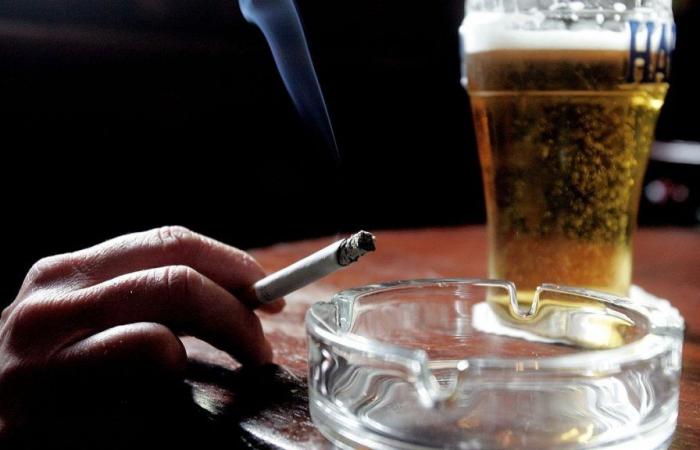A new report shows the impact of certain industries on health and premature deaths in Europe, according to the World Health Organization.
ADVERTISEMENT
According to a new report from the World Health Organization (WHO), 2.7 million deaths are attributable to just four industry sectors each year in Europe.
The tobacco, ultra-processed food, fossil fuel and alcohol industries would be “totally or partially responsible” almosta quarter of all deaths in this areaaccording to this report.
“These four sectors kill at least 7,000 people every day [en Europe]. These same industry giants are blocking regulations that would protect the public from harmful products and marketing, and protect health policy from industry interference.”said Dr Hans Kluge, WHO regional director for Europe, in a statement.
The report explains in detail how these industries use marketing techniques to increase their profits, to the detriment of public health.
“These sectors all use the same methods to maximize their profits, increase their market share and create the most conducive environment possible for them to grow”the report says.
WHO Europe recommends stricter regulation of the marketing of products harmful to health, prevention of conflicts of interest and the fight against monopolies.
The impact of commercial industries on health
According to figures cited in the report, tobacco causes 1.1 million deaths per year in Europe, while alcohol causes more than 420,000.
Fossil fuels cause more than half a million deaths per year, while diets high in processed meat, sodium, sugary drinks and fats cause almost 390,000 deaths per year in Europe.
According to the organization, these industries seek to influence policies, to present themselves as “key partners of governments in the fight against the harmful effects of their products on health”.
The report cites the example of Philip Morris International – which donated ventilators to deal with COVID-19 – and how the industry ran a PR campaign to oppose a tax on drinks sweet in Estonia.
“Industry techniques include exploiting vulnerable people through targeted marketing strategies, deceiving consumers and making false claims about the benefits of their products or their environmental standards”adds Hans Kluge.
Belgian Deputy Prime Minister and Minister of Health Frank Vandenbroucke, who presented the report, said: “Our current efforts are still insufficient to regulate industry practices that harm health”.
“I call on all newly elected European parliamentarians and policy makers to recognize the scale of this problem and the considerable impact of industry practices on public health and on our democratic processes”he adds.
Responding to the report, Rebeca Fernández, scientific director of FoodDrinkEurope, which represents the European food and drink industry — named in the section on sugary drinks — said thatit was irresponsible and outrageously misleading to associate “consumption of processed foods to tobacco and fossil fuel industries”.
“We all need food — and we all need processed foods”she asserts, specifying that the WHO report ignored the fact that there was no “no common definition” ultra-processed foods.






